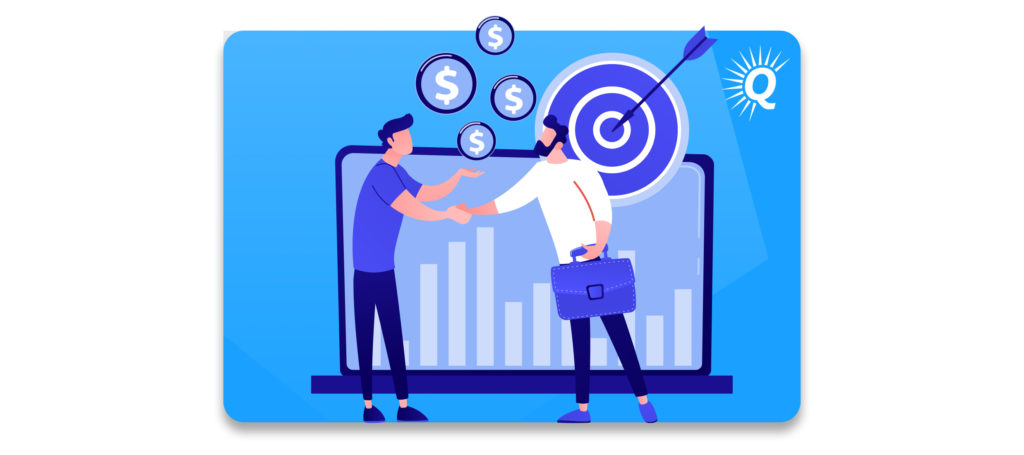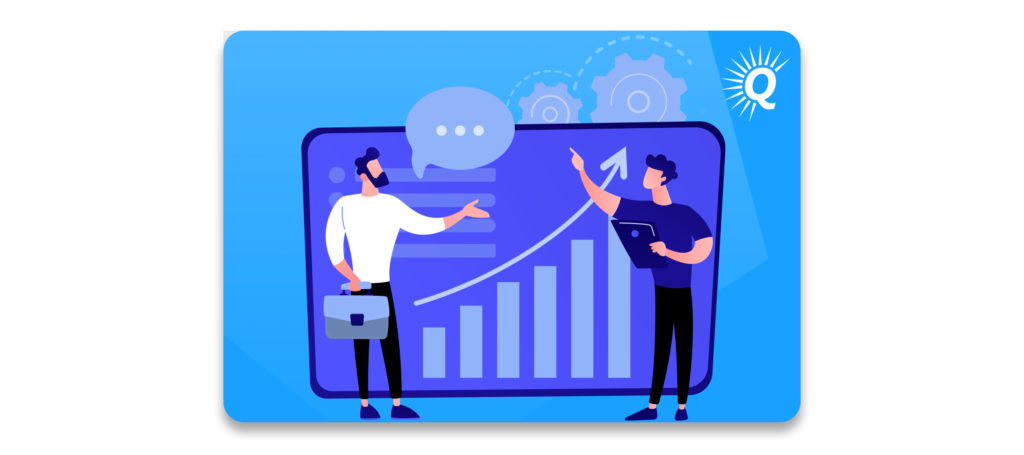Topics:
Never Miss a Beat - Get Updates Direct to Your Inbox
FILTER:


How to Negotiate with FBA Roll-Up Firms and Sell Your Amazon Business for Top Dollar
By Ian Drogin


FBA roll-up firms have become increasingly common in the market for buying and selling Amazon businesses. In fact, the top five firms have raised over two billion dollars (and counting) to fund their acquisition efforts.
If you’re thinking about selling your Amazon business to an FBA roll-up firm, it’s crucial that you do your homework before accepting an offer. By understanding your options, you’ll be in a much better position to negotiate favorable deal terms and a higher selling price.
This article will explain how FBA roll-up firms operate, how they impact the broader marketplace, and how you can navigate the selling process to maximize your profits.
Thinking of Selling Your Business?
Get a free, individually-tailored valuation and business-readiness assessment. Sell when you're ready. Not a minute before.
What Are FBA Roll-Ups?
FBA roll-ups are firms that specialize in acquiring Amazon businesses. In other words, they seek to purchase a large number of FBA businesses, which they then manage within their own operational systems.
Like most owners who have just purchased a new business, aggregators focus on growing their acquired Amazon businesses. Because they’re extremely well resourced and backed by venture capital, they’re often able to dramatically improve business efficiencies by optimizing marketing efforts, renegotiating supply chain agreements, and using specialized staff to perform various tasks.
“If you’re thinking about selling your Amazon business to an FBA roll-up firm, it’s crucial that you do your homework before accepting an offer.”


Other names for an FBA roll-up firm include aggregator, FBA brand operator, roll-up buyer, private equity firm, FBA brand investor, and acquirer.
This interview goes into greater detail about the rise of aggregators and their marketplace impact on Amazon businesses.
Acquisition Strategy
Although their operational infrastructure is highly complex, their overall strategy is simple: buy Amazon businesses at a 2-3X multiple to add to their portfolio, where they immediately become ten times as valuable.
Like any business buyer, executives at FBA roll-up firms want to get the best possible deal. To accomplish this, they often look for Amazon sellers who don’t really know the true worth of their business. Once they identify businesses that fit their criteria, they reach out to the owner with the intention of making a purchase offer.
The Aggregator Offer
On the surface, FBA roll-up firms have a strong case for why you should sell your business to them—they’ll pay you cash, close the deal in 30 days, and cut out broker fees. To the inexperienced Amazon FBA seller, such an offer is very appealing.
However, if you dig deeper, there are some not-so-attractive qualities that FBA roll-up firms bring to the table…
Downsides of Selling Directly to an FBA Roll-Up Firm
Most aggregators fail to advertise that they require a few months’ worth of inventory, hold back a portion of the deal as a “stability payment,” and provide a deal structure that includes an earnout.
Additionally, FBA roll-up firms do not want you to go to market with your business. Why? For the simple reason that they know they will need to offer a higher purchase price if they face competition from other buyers.


Competition is Your Friend
If an auctioneer tries to sell a painting to just one bidder, they’re going to have a hard time getting top dollar, even if the painting is a complete masterpiece. On the other hand, if the auctioneer is selling the painting to 100 bidders, you can be certain that the spirit of competition will drive the price up and ensure the master artist is well-rewarded.
Just as a savvy auctioneer would never sell to a room with one bidder/competitor, an FBA business owner should always seek to maximize the pool of potential buyers.
“An FBA business owner should always seek to maximize the pool of potential buyers.”
Working with a business advisor is one way to access a wide pool of qualified buyers who are eager to acquire successful Amazon businesses. Not only do more buyers lead to a higher purchase price, but they also provide more possible deal structures from which to choose.
The bottom line is that if one FBA roll-up firm sees value in your business, then there’s a lot of potential buyers who will as well.
“If one FBA roll-up firm sees value in your business, then there’s a lot of potential buyers who will as well.”
Identifying Your Goals when Planning to Sell Your Amazon FBA Business
Before charging forward and accepting an offer, it’s important to ask yourself the fundamental question: “what are my goals for selling my business?”
Your goals will largely determine what deal structure is most desirable for you. To gain clarity on what a “good” deal looks like for yourself, start by asking yourself a few critical questions:
- Do you want to stay involved in the operations of the business, or completely disconnect from it after the sale?
- Do you want to maintain equity or accept an all-cash offer?
- What is more important: closing quickly or getting the best deal possible?
There is often an opportunity cost between different deal structures and exit paths.
Staying Involved Vs. Making a “Clean Break”
One of the first questions to answer is whether you want to stay involved in the business or completely cut ties.
If you’re sick and tired of the Amazon space or have another project you’re eager to start, you may prefer to make a clean break from your current business. If that’s the case, you’ll likely want to find a buyer who doesn’t expect you to stay involved post-sale.


On the other hand, if you still enjoy running your business but don’t want the responsibility or risk of being the sole owner, it might make sense to negotiate a deal allowing you to remain in an important role.
Equity Vs. Cash
Staying involved in your business typically corresponds with maintaining equity after the sale.
Although keeping equity in your business usually means that you receive less cash at closing, it also affords you the opportunity to partake in future upsides if the business continues to grow. Entrepreneurs who see a promising future for the business often welcome the opportunity to keep some skin in the game.
Other sellers prefer to receive the full purchase price in cash at closing (or, shortly thereafter). In such cases, the Amazon seller foregoes potential future profits in return for a lump sum.
Quickest Deal Vs. Best Deal
Another key consideration is the time value of selling your small business. For most sellers, getting the best deal possible is far more important than saving a few weeks, although there are exceptions.
For owners who are dealing with financial hardship, sometimes there’s no other option besides selling as quickly as possible. If a seller is facing home foreclosure or a personal emergency, it can be worth forgoing the best possible offer to keep other aspects of life from falling apart.
“It’s typically worth spending a little extra time to land the best deal.”
For sellers who are in a better position, it’s typically worth spending a little extra time to land the best profit. After all, if you’ve invested years of your life building a valuable business and planning an exit strategy, why would you leave money on the table?
While directly selling to an aggregator can sometimes be the quickest path to exit, it is not the path that will yield the highest purchase price. To get the best deal, it’s important to get an accurate valuation and allow a wide pool of buyers to compete for your business.


What is an SDE Multiple and How is it Calculated?
Obtaining an accurate valuation of your business is a necessary step to landing the right deal. However, it’s not uncommon for mistakes to be made, even among intelligent and accomplished entrepreneurs.
If you’re selling straight to an aggregator firm, they’re going to happily let errors slip by if it’s in their interest.
While it’s highly recommended that you seek professional advice when valuing your FBA business, it’s also wise to gain a basic understanding of the valuation process for yourself.
There are two primary numbers that determine the value of your business: Seller’s Discretionary Earnings and the multiple.
What Are Seller’s Discretionary Earnings?
The simplest answer is that Seller’s Discretionary Earnings (SDE) are the earnings that the seller has available to spend at their discretion.
The more technical answer is that SDE is the pre-tax profits before accounting for interest payments, one-time investments (e.g. an accounting audit, educational conference), non-cash expenses, the owner’s benefits, and non-related income of expenses. (These are expenses that the new buyer won’t be obligated to incur).
“Seller’s Discretionary Earnings (SDE) are the earnings that the seller has available to spend at their discretion.”
If you’re familiar with business accounting, you’ll notice that SDE differs from net income. This article goes into greater detail about the process of calculating SDE.


Why Are Seller’s Discretionary Earnings Important in Business Valuation?
Seller’s Discretionary Earnings provide a clear depiction of the business’s profitability. Potential buyers use this information to make predictions about the business’s future performance in order to weigh it against their investment strategies.
Once SDE is calculated, it’s multiplied by another number known as “the multiple” to determine the value of your Amazon brand.
The bottom line is that a higher SDE means a higher business valuation.
Determining the SDE Multiple
While SDE is calculated using Profit and Loss statements, determining the SDE multiple (aka EBITDA multiple) is as much of an art as it is a science.
In general, there are four primary areas of your company that determine the multiple. We refer to these as “The Four Pillars of Value,” and they include:
- Growth
- Risk
- Documentation
- Transferability
It’s no surprise that buyers love to acquire businesses that are quickly growing. Therefore, all else being equal, businesses with consistent, steep growth curves will be valued at a higher multiple than those that have plateaued or are in decline.
Just as growth increases the value of a business, risk decreases it. If your FBA business depends too heavily on a single SKU for its success or depends upon you as the “face” of the brand, buyers may be resistant to pay top dollar.


Documentation refers to the systems and organization that exists within your Amazon business. If you have comprehensive and explicit Standard Operating Procedures in place and orderly, clearly detailed financials, you’ll receive a higher valuation than if you don’t.
Transferability is the ease with which a new owner could take over the reins and run your business. If someone could step into your shoes today and succeed easily, your business is seen as highly transferable. On the other hand, if running your business requires extensive specialized knowledge or skills, the multiple will be lower.
The above paragraphs offer a very abridged version of how SDE multiples are determined. For a more in-depth explanation, check out, Four Pillars of Value that Make Up a Valuable Website.
Creating a Detailed and Complete Add-Back Schedule
In addition to calculating SDE and the multiple, you also need to create a detailed and complete add-back schedule.
Just as SDE mistakes are common among Amazon sellers, the add-back schedule is another crucial step in which qualifying expenses are often omitted.
Buy a Profitable Online Business
Outsmart the startup game and check out our listings. You can request a summary on any business without any further obligation.
What is an Add-Back?
A familiar adage in the business world is that owners give buyers an “Ignorance Discount” when they are not familiar with all categories of add-backs. This is something that you don’t want to do. It can cost a lot.
In short, an add-back is an expense that will not carry over to the new owner. In other words, add-backs are expenses that you incurred while running your business that will not need to be incurred again by the person who acquires your business. Some examples were above in SDE, but to refresh, a one-time account audit, the webinar series you attended that addressed SEO, or a membership you have to a mastermind – these may not be things a new owner takes on.


“A familiar adage in the business world is that owners give buyers an “Ignorance Discount” when they are not familiar with all categories of add-backs.”
When selling your business, it’s important to create an add-back schedule that includes all of the expenses that qualify as add-backs. We call them “add-backs” because these expenses are added back to your net profit before you calculate the value of your business.
Why are Add-Backs Important in Amazon Business Valuation?
Since including add-backs increases the value of your business, it’s absolutely essential that you don’t omit any expenses that qualify as add-backs. Doing so can lead to a dramatically reduced business valuation.
Many owners are familiar with certain add-backs, such as personal travel expenses. Other add-backs are less common and can easily be missed. Because there are numerous expenses that can qualify as add-backs and each business is unique, it’s always a good idea to speak with an advisor to ensure your add-back schedule is complete.
“Since including add-backs increases the value of your business, it’s absolutely essential that you don’t omit any expenses that qualify as add-backs.”
Like SDE, FBA roll-up firms are not going to let you know if you failed to include a particular add-back. It’s not unusual for such a mistake to cost tens or hundreds of thousands of dollars in business value.
Learning about the three levels of add-backs for eCommerce businesses can help you understand the general add-back categories to be aware of.
“FBA roll-up firms are not going to let you know if you failed to include a particular add-back.“
Evaluating Potential Deal Structures
When preparing to sell an Amazon FBA business, it’s important to identify what deal structure will help you to best achieve your goals.
There are several deal structures you can use when selling your FBA business. Some of these include:
- All-cash
- Earn-out
- Seller financing
- Partial buyout
- Consulting agreement


All-Cash Deals
As the term implies, all-cash deals involve the full purchase price exchanging hands at the time of purchase. All-cash deal structures are highly desirable for sellers who want to quickly and completely cut ties with the business they’re selling. Of course, all-cash deals require that the buyer have enough capital for funding the acquisition.
Earn-Outs
In an earn-out, a portion of the total purchase price is withheld by the buyer and paid to the seller at a future point in time contingent on the specified performance metrics being met. Earn-outs often happen when the seller is very valuable to the business and is willing to stay involved for a period of time.
Seller Financing
Seller financing involves the seller financing a portion of the purchase price. In other words, in a seller financed deal, the buyer may pay only 70% of the purchase price at closing and then make monthly payments with interest until the remaining 30% is paid to the seller.
Seller financing is also referred to as owner financing.


Partial Buyouts
In a partial buyout, the seller retains a portion of the business. In such transactions, the seller often continues being involved in the operations of the business. While some sellers prefer to receive the full purchase price in cash at closing, others appreciate the opportunity to maintain equity.
Consulting Agreements
Some deals include consulting agreements, which usually involve the seller performing consulting services for the new owner after the sale. Often, consulting agreements are used when the new owner isn’t familiar with the business model, or if they want to use the expertise of the seller to train staff.
While there are some deal structures that are more standard than others, there are nearly limitless ways in which deals can be structured.
Conclusion
For sellers who need to sell their business as quickly as possible, it can sometimes make sense to sell directly to an FBA roll-up firm.
If you have a little more time to spare, going to market will enable you to access more buyers, gain a more accurate valuation, more offers, a higher purchase price, and more deal structures to choose from.
Thinking of Selling Your Business?
Get a free, individually-tailored valuation and business-readiness assessment. Sell when you're ready. Not a minute before.





